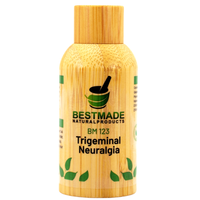
PROTEIN DEFICIENCY: SYMPTOMS, CAUSES & HOW TO TREAT
What is protein?
Protein is a string of amino acids that create the building blocks for the physical parts of your body, including muscles, bones, skin, hair, nails, and organs. Protein is a macronutrient that is essential to building muscle mass. It is commonly found in animal products, though is also present in other sources, such as nuts and legumes.
Silicea is best used for skin ailments, including pimples, blackheads, and blemishes associated with common acne. Also useful for brittle hair and nails.
There are three macronutrients: protein, fats, and carbohydrates. Macronutrients provide calories or energy. The body requires large amounts of macronutrients to sustain life, hence the term “macro,” according to the University of Illinois McKinley Health Center. Each gram of protein contains 4 calories. Protein makes up about 15 percent of a person’s body weight.
Chemically, protein is composed of amino acids, which are organic compounds made of carbon, hydrogen, nitrogen, oxygen, or sulfur. Amino acids are the building blocks of proteins, and proteins are the building blocks of muscle mass, according to the National Institutes of Health (NIH).
When protein is broken down in the body it helps to fuel muscle mass, which helps metabolism. It also helps the immune system stay strong. It helps you stay full. A lot of research has shown that protein has satiety effects.

What role does protein play in our health?
Protein plays a critical role in your health. From helping you increase muscle mass and strengthening your bones, to lowering blood pressure and improving sleep and brain health, protein plays a role in just about every bodily function.
When we say “protein builds muscle,” what we mean is the body breaks down protein into its amino acids, and those amino acids are synthesized into muscle. Amino acids – the “building blocks of protein” – are compounds that are responsible for a variety of bodily processes, including neurological processes and muscle synthesis. 80% of muscle is made up of amino acids.
When it comes to protein, 20 different amino acids make up each molecule of protein, and these are split into 2 categories: Non-Essential Amino Acids and Essential Amino Acids (EAAs)
- Non-Essential Amino Acids – produced naturally by the body
- Essential Amino Acids – not produced naturally by the body and must be consumed through food or supplementation
It is important to understand the role amino acids play in protein because some amino acids are better than others when it comes to muscle health – which is critical for health and well-being.
Calc Phos may help with feelings of exhaustion when recovering from an illness. Effective natural therapy for growth problems, including late tooth growth and broken bones. Useful for thin and anemic individuals.
Types of protein
There are two main categories (or sources) of proteins – animal and plant-based.
Animal proteins include:
- Whey (dairy)
- Casein (dairy)
- Egg
- Beef
- Chicken
- etc.

- Soy
- Pea
- Brown Rice
- Chickpea
- etc.

The main difference between animal and plant proteins is their amino acid profile. Most animal proteins are complete proteins, meaning they contain all 9 of the essential amino acids (EAAs). Most plant proteins are considered incomplete proteins, meaning they are missing at least one essential amino acid. However, eating multiple plant proteins together can create the effect of complete proteins.
Animal proteins, such as whey protein, have been studied extensively clinically to determine their effect on skeletal muscle and tissue repair so are recommended for athletes and people who need to increase muscle health and mass, like the elderly or post-surgical patients.
There are two main reasons for this. First, whey is a complete protein, meaning that it contains all of the essential amino acids. Secondly, whey proteins are abundant in Branched Chain Amino Acids (BCAAs) which are a subset of EAAs that support muscle growth.
Why is protein important to our body
Few nutrients are as important as protein.
Protein is the building block of your muscles, skin, enzymes, and hormones, and it plays an essential role in all body tissues.
Most foods contain some protein. As a result, true protein deficiency is rare in developed countries. However, some people may still be at risk.
Deficiency leads to various health problems, while low protein intake may also be a concern, as it can cause subtle changes in your body over time.
Tissue Cell Salts Kit contains all 12 schussler cell salts with easy to use remedy chart. It is recommended to boost your immune system, stimulate natural healing, and provide cellular nutrition vital to cellular function.
What happens if we don't have enough protein in our body
Too little protein may cause changes in body composition that develop over a long time, such as muscle wasting.
Protein deficiency, also called hypoproteinemia, is usually tied to overall low protein intake.
The most severe form of protein deficiency is known as kwashiorkor. It most often occurs in children in developing countries where famine and imbalanced diets are common.
Protein deficiency can affect almost all aspects of body function. As a result, it is associated with many symptoms.
Some of these symptoms may start to occur even when protein deficiency is marginal.

What is protein deficiency?
Protein deficiency is when people do not get adequate amounts of protein from their diet.
A mild case of protein deficiency may cause:
- Protein cravings as the body tries to stimulate protein intake
- Weakness
- Fatigue
A moderate case of protein deficiency may include symptoms like:
- Muscle wasting, also known as muscle atrophy
- Thinning hair
- Brittle nails
- Flaky skin
- Edema
- Increased Severity of Infections
Silicea is best used for skin ailments, including pimples, blackheads, and blemishes associated with common acne. Also useful for brittle hair and nails.
- Stomach bloating
- Liver failure
- Skin that splits open
- Stunted growth
- Porous bones that are weak and thin
- Treatment for protein deficiency

Treatment for protein deficiency
Increase your intake of high protein foods.
- Legumes, ( lentils and beans)
- Eggs
- Seafood, (shrimp and salmon)
- Nuts and seeds (almonds, pistachios, cashews, and flax seeds)
- Whole grains (quinoa, barley, oatmeal, bulgar)
- Poultry (chicken and turkey)
- Dairy products, (Greek yogurt, buttermilk, cottage cheese)
Research says that you should try to consume 1 gram per kilogram (1kg = 2.2 lbs for us Americans) of body weight per day. If you are looking to put on muscle, you should increase your protein intake to 2-3 grams per kilogram.
It is not just bodybuilders who need to have a really good supply of protein. The body and metabolism of someone recovering from an injury or surgery will require energy from tissue-building nutrients provided by protein. In other words, a diet with lots of protein plays a key role in recovery and healing.
Protein is also very important as we age. Beginning around the age of 40, you begin to lose up to 3-5% of your muscle mass per decade, a condition known as sarcopenia. Sarcopenia is the reason why falls and fractures are so common among the elderly. Increasing your protein intake, as well as continuing to exercise, can help preserve muscle and fight off sarcopenia.
BM221 may help with bone density issues and bone function. Useful for bone density issues, including overall weak bone density, hardness, and issues of stability and function.
High-protein foods
According to Matthew Kadey, a registered dietitian writing for Bodybuilding.com, some high-protein meats include:- Top or bottom round steak (23 grams of protein per 3-ounce serving)
- Lean ground beef (18 grams per 3-ounce serving)
- Pork chops (26 grams per 3-ounce serving)
- Skinless chicken breast (24 grams per 3-ounce serving)
- Turkey breast (24 grams per 3-ounce serving)
- Sockeye salmon (23 grams per 3-ounce serving)
- Yellowfin tuna (25 grams per 3-ounce serving)
- Greek yogurt (23 grams per 8-ounce serving)
- Cottage cheese (14 grams per half-cup serving)
- Eggs (6 grams per large egg)
- 2 percent milk (8 grams per cup)
- Some canned foods, like sardines, anchovies, and tuna average around 22 grams of protein per serving
- Navy beans (20 grams per cup)
- Lentils (13 grams per quarter-cup)
- Peanut butter (8 grams per 2 tablespoons)
- Mixed nuts (6 grams per 2-ounce serving)
- Quinoa (8 grams per 1-cup serving)
- Edamame (8 grams per half-cup serving)
- Soba noodles (12 grams per 3-ounce serving)

What if you are vegan or lactose intolerant?
There is a solution for you! By supplementing your plant protein intake with additional amino acids (e.g. BCAAs) either through other plant protein sources or nutritional supplements, you can get the amino acid levels your body needs for optimal muscle protein synthesis. For example, lysine, methionine, and tryptophan (essential amino acids) are in very low quantities in plant-based proteins and therefore you need to supplement to get them into your body to stimulate muscle protein synthesis.
BM248 provides support for bone health and bone mass. May help with weak and brittle bone disorders, which can lead to bone fractures, height loss, curving of the spine, and back pain.
Why is protein good for you?
- Reduces Appetite and Hunger Levels
- Increases Muscle Mass and Strength
- Good for Your Bones
- Reduces Cravings and Desire for Late-Night Snacking
- Boosts Metabolism and Increases Fat Burning
- Lowers Your Blood Pressure
- Helps Maintain Weight Loss
- Does Not Harm Healthy Kidneys
- Helps Your Body Repair Itself After Injury
- Helps You Stay Fit as You Age
- Strengthens your immune system

The Bottom Line
Protein has many roles in your body. It helps repair and build your body’s tissues, allows metabolic reactions to take place, and coordinates bodily functions.
In addition to providing your body with a structural framework, proteins also maintain proper pH and fluid balance. Finally, they keep your immune system strong, transport and store nutrients, and can act as an energy source, if needed.
Collectively, these functions make protein one of the most important nutrients for your health.
Protein is incredibly important to our health, not only to build bigger muscles, but to heal better from injury, age better, and prevent certain disease conditions.
But protein is not one size fits all, and it is important to understand the different types of protein, how much you need, and how your body processes protein so that you can set yourself up to properly heal and live your healthiest.








Laissez un commentaire